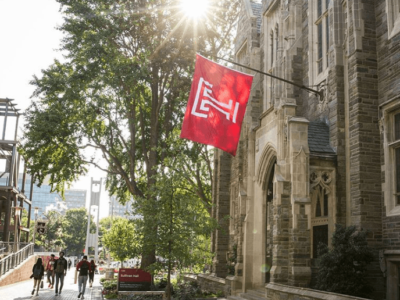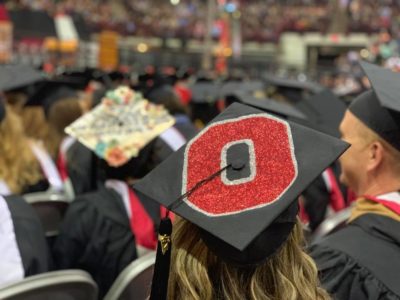Career services are rarely a consideration during your college search; €”universities with the hottest guys or girls seem more imminently relevant. But come graduation, career support can make or break your entry into the real world. We’ve uncovered the schools with the most resources to get you employed. We’re talking high graduation rates, strong alumni networks, innovative career fairs and top-dog recruiter connections.
Find out which universities offer students the best career services.
10. Princeton University
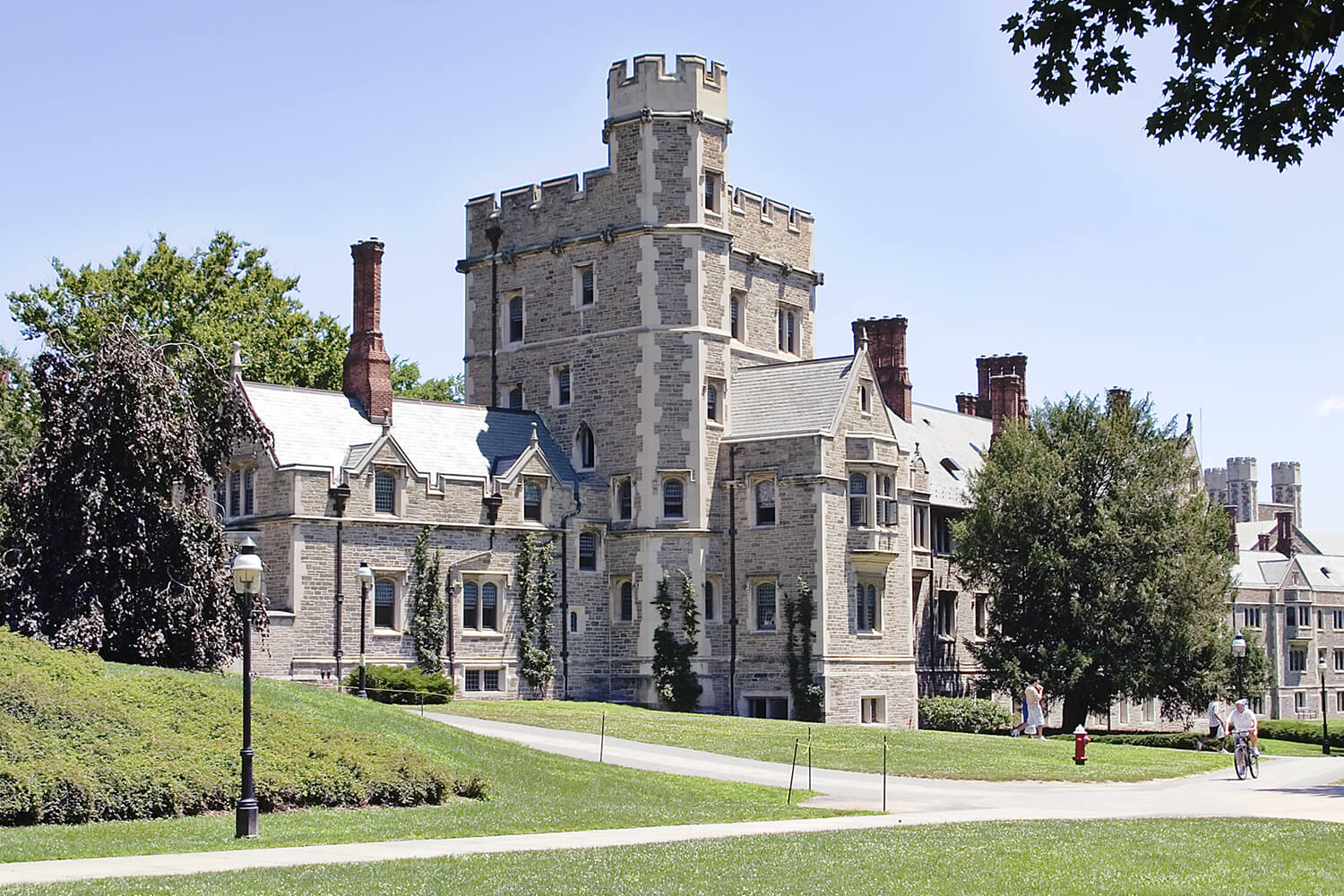
Ivy League students often go on to further education rather than entry-level jobs, sometimes making their bachelor’s degree graduates less valued by recruiters said a Wall Street Journal study. But Princeton rises above this trend. Nearly 87 percent of graduates from Princeton’s Class of 2013 acheived their post-graduation plans within six months of graduation and more than 65 percent accepted employment. For the career-minded Tiger, the job hunt is anything but scary thanks to Princeton’s alumni connections. Their unique Princeternship program offers 1-3 day shadowing opportunities with alumni over spring break. And the new #HireTigers Meetup, a casual career fair blending traditional employer networking with alumni panels and industry-specific chat areas, will replace the General Interest Career Fair this September.
9. Texas A&M
With over 44,000 current undergraduates, Texas A&M boasts an impressive alumni network (#8 in the nation for being the “biggest, most active and most enthusiastic†according to Online College.org). Over 400,000 students have graduated from Texas A&M since it was founded in 1876, and 50% of graduates are from the Class of 1996 on. That’€™s 200,000 potential connections for current students. Recent notable Aggies include Rita LeBlanc, owner of the New Orleans Saints, four current Texas senators and ten Nobel Prize laureates. Texas A&M has department-specific career services pages and a generous offering of industry-themed career fairs including Construction Science and Retailing.
8. University of Notre Dame
Indiana-based Notre Dame is committed to getting students diplomas: 96% of undergraduates finish within six years. In addition, the career services site offers extensive resources for interview preparation, which may contribute to Notre Dame’s top recruiter rating by the Wall Street Journal. Shannon Hagedorn, senior Management Consulting and Psychology major, who developed her own on-campus position in a department related to her career, says she would never have had such an opportunity without €œthe little push from the Career Center counselors.
7. Massachusetts Institute of Technology

Big tech companies like Google, Apple, Microsoft and Boeing have their eyes on MIT undergraduates. That hiring profile translates to the seventh best alumni network in the nation, which is great news for students looking to network their way into the startup world and entry-level positions. Thinking that a future in America isn’t for you? MIT is holding a European Career Fair next spring featuring international companies recruiting in the US. That’s in addition to their annual Fall, Spring, Tech and Civil and Environment Engineering fair offerings.
6. University of Florida
Recruiters surveyed by the Wall Street Journal love the University of Florida, and the school’s stellar job search support (top-ranked by Best Colleges and the Princeton Review) is a major contributing factor. Stephani Babcock, Psychology and Counselor Education Ph.D. candidate noted UF’s diversity of resources for helping students find employment. The school hosts several annual career fairs, one of which is catered specifically to summer jobs—great news for undergraduates looking to test the waters of the working world. For students still unsure of their path after graduation, they can use the online CHOMP resource (Career Help fOr Major Planning). “It helps students make sense of their interests,” said Heather White, director of the Career Resource Center.
5. Bentley University

If you’re in need of an internship to launch you into the professional world, Massachusetts’ Bentley University will get you one. The US News & World Report states 90% of Bentley graduates held internships during their undergraduate years. Students can receive credit for internships as upperclassmen, and are eligible for an additional one-credit academic internship after completing the Career Development Introduction Seminar. If credit isn’t your thing, Bentley strongly encourages employers who post internships to their site to offer interns financial compensation. Bentley’s HIRE Education program–seminars, personal advising and year-by-year checklists—guides students through career preparation starting in freshman year. 97% of graduates go on to employment or graduate school; we’re not surprised in the slightest.
4. Barnard College
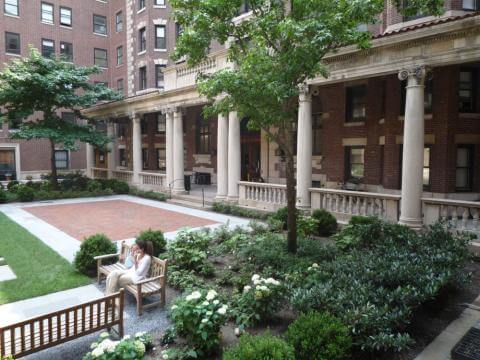
Always wanted a personal career coach? Consider Barnard, an all-women’s college in New York City that stands out for its 90% 6-year graduation rate. Almost all graduates €”(99%) €”go on to employment or graduate school. We’re most impressed by their Senior Initiative Program, a series of workshops such as “€œMarketing Yourself 101″€ and “€œConducting a Comprehensive Job Search in a Tough Market”€ held each February to prepare graduating seniors for a competitive job search. Better yet, each participating student is assigned a career counselor and coach to guide her through the process.
3. Purdue University
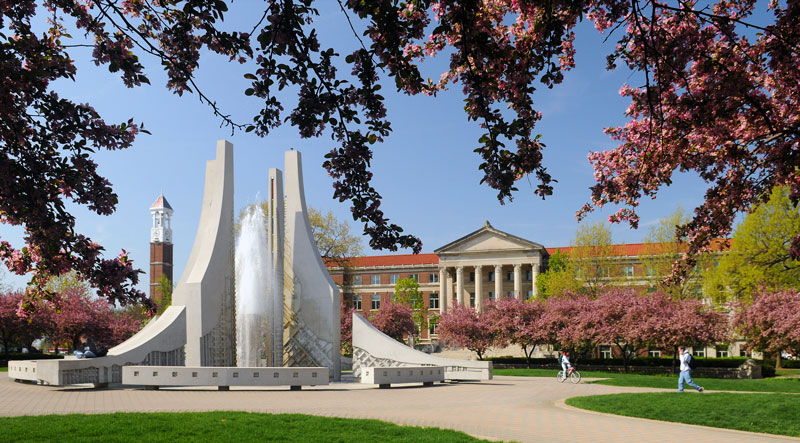
Purdue’€™s Center for Career Opportunities website shows they’€™re serious about helping students stand out. A boldly-colored, boxy modern website design organizes the university’€™s wealth of resources in an intuitive manner, making it easy for students to inform their job search. Senior Finance and Management major Evan Langbehn said, “€œHaving a central hub [myCCO] to look for job openings, and then interview on campus, relieves a lot of stress… and allows you to better maintain your other school commitments.” Langbehn secured both his summer internships through the CCO. Timothy Luzader, director of the CCO, said, “€œWe know that we make a difference in students’€™ lives when we help them to successfully transition from campus to the world of work€.” In fact CCO Career Closet collects donations of business attire for Boilermakers unable to afford the outfits they need for interviews.
2. Pennsylvania State University
Being at a big school means you’re automatically a guppy swimming in an ocean, right? Wrong, when it comes to Penn State. Jeff Garis, Senior Director of Career Services at Penn State, says students can receive walk-in advising during all business hours; if their questions are more complex, individual counselors are available by referral. This personal attention complements “€œone of the largest recruiter employment bases in the country,” said Garis, so it’€™s no wonder Penn State is on everyone’€™s career services radar. They’re ranked #1 by the Princeton Review, and first among recruiters by the Wall Street Journal. And it certainly doesn’t hurt that the career services building is huge and beautiful.
1. Northeastern University
Job opportunities are literally on your doorstep at Northeastern, thanks to the Employer in Residence program. Companies are granted actual offices in the Career Development Center to increase interaction with students. In addition, potential employers regularly chair panels about career fairs and resumes. Their no-holds-barred approach to building connections between students and recruiters has earned them recognition by both Best Colleges and the Princeton Review. If you’re the independent type, their online database of the usual career search support materials—interview tips, resume guidance, and job search prep—is also extensive and well-organized. Overall, Northeastern is the perfect party host when it comes to careers: it’d be hard to come and go as a student without making an employer connection.
Put on Your Professional Face: Quick Career Fair Do’s and Don’ts
Written by Melissa Shapiro, sophomore, communication, University of Maryland
Resume
Do: Bring your resume to your school’s career center to have it reviewed, or use guidelines from your university’s website and ask a peer to proofread the final draft. Highlight key points that show your unique experience.
Don’t: Go beyond one page. Key information should be seen all at once.
Appearance
Do: Wear business casual, advised Suzanne Helbig, the Assistant Director of Counseling and Marketing at the UC Berkeley Career Center. However, “employers realize that you are running from class to class. If you are not wearing business casual, don’t let that prevent you from going. It’s not a deal breaker,” she said.
Don’t: Look messy, unprofessional or inappropriate. Steer clear of controversial graphic tees and Daisy Duke shorts.
Preparation
Don’t: Bring a cover letter. “You are the cover letter! You get to introduce yourself and do the job of a cover letter,” Helbig says. Never say “I looked at your website.” Show them, do not tell them. You should avoid saying, “tell me about your organization.” It proves that you have not done your homework.
Do: Your homework. Sign up early and research the companies you are interested in before attending. During your conversation with the company representative, throw in a sentence that references something that you learned during your research.
At the Career Fair
Do: Have a 30-second ‘commercial’ ready. Include an introduction, why you are interested and what you bring to the table. Take a few notes after each station. Record certain points that will help you remember the representative you spoke with and what was discussed.
Don’t: Approach your top choices first. Go to less desirable booths first in order to get comfortable with the process.
Overall
Do: Always send a thank you note. According to Helbig, it is best to follow up 24 to 48 hours after a fair. She said, “Make sure to include a highlight from your conversation with the representative and inquire about the next steps you should take in order to continue communication.” An email is great, but consider sending a hand-written or typed note (if your handwriting isn’t fabulous) via snail mail to the companies you are most interested in. Take the opportunity to get yourself out there. Even if the positions you are looking for are not advertised, a representative may forward your resume on to another department.
Don’t: Assume you are too young or inexperienced to attend a career fair. Underclassmen should attend. It is never too early to start networking; the more connections you have, the better.
For more articles on getting the job, check out:
CM’s College Resume Survival Guide
Top 10 Tricky Interview Questions
Rejected Resumes: Your First Time
For more college rankings, check out:
CM’s Top 10 Colleges for Entrepreneurs
Top 10 Daily College Newspapers
*Updated July 15, 2014 by Melissa Shapiro to include “Put on Your Professional Face: Quick Career Fair Do’s and Don’ts.”









